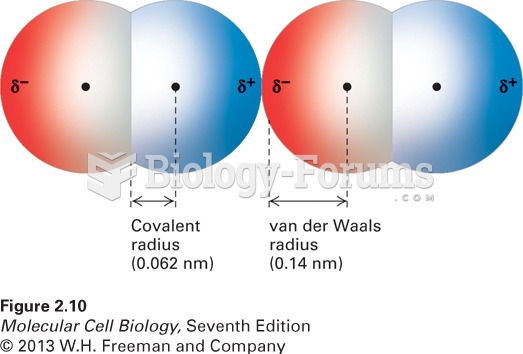|
|
|
Blood is approximately twice as thick as water because of the cells and other components found in it.
Glaucoma is a leading cause of blindness. As of yet, there is no cure. Everyone is at risk, and there may be no warning signs. It is six to eight times more common in African Americans than in whites. The best and most effective way to detect glaucoma is to receive a dilated eye examination.
Approximately 500,000 babies are born each year in the United States to teenage mothers.
Approximately one in four people diagnosed with diabetes will develop foot problems. Of these, about one-third will require lower extremity amputation.
More than 30% of American adults, and about 12% of children utilize health care approaches that were developed outside of conventional medicine.







